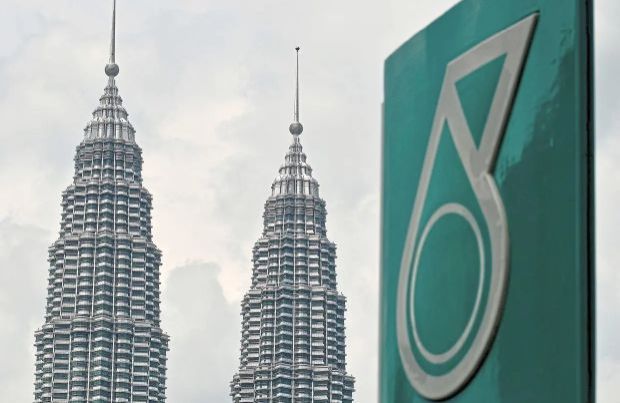PETALING JAYA: The financial impact on Petronas Gas Bhd (PetGas) following the bursting of its gas pipeline in Putra Heights is estimated to be less than 5%.
Analysts said the impact on the oil and gas company’s share price is likely to be contained below 5% as well.
Rakuten Trade head of equity sales Vincent Lau said PetGas’ share price which opened marginally lower by 1% yesterday, following the lifting of a trading halt at 10am, was mainly a knee-jerk reaction.
“The slight decline in share price is likely driven by global news, particularly US President Donald Trump’s reciprocal tariff announcements, rather than the pipeline incident itself. Both the expected financial impact and share price decline are estimated to be less than 5% and anything below 5% is not considered material,” he told StarBiz.
For the financial year ended Dec 31, 2024, PetGas saw a 1% year-on-year (y-o-y) increase in its net profit to RM1.8bil, or an earnings per share of 92.80 sen. Revenue was also up by 1% y-o-y to RM6.5bil.
On Tuesday, national oil company Petroliam Nasional Bhd (PETRONAS) confirmed that a fire had occurred at PetGas’ main pipeline near Putra Heights, Puchong, Selangor.
The fire, which involved a leaking PetGas pipeline, damaged 190 homes, 148 cars and 11 motorcycles, affecting at least 305 people. No fatalities have been reported so far.
Tradeview Capital fund manager Neoh Jia Man said it is still too early to determine the actual extent of the incident’s impact, in absolute terms, on PetGas.
Nevertheless, he said some estimates are suggesting a potential cost of around RM20mil to RM30mil, which would translate to a 1% to 2% impact on its earnings, given that PetGas has a huge earnings base of close to RM2bil.
“PetGas’ gas transportation business contributes about 26% of its total segmental profit. Hence, some estimates suggest that even if the segment takes a 5% hit, the overall impact on the company’s bottom line would be around 1% to 2%, which is not a lot. This is why the share price reaction has been quite limited,” he said.
Neoh said several key uncertainties remain with one of them being the allegations that the gas pipeline fire incident had been caused by digging activities at PETRONAS’ reserve land.
“If this is true, PetGas could take legal action against the contractor or developer involved to obtain compensation. Another concern then would be whether those companies have enough capital to pay PETRONAS. That said, PetGas should have public liability insurance to cover such risks.
“As such, the question now is more on the operational impact of PetGas, specifically how much gas was being transmitted through the affected pipeline and whether supply can be rerouted through other parts of the group’s pipeline network.
“To this end, even Gas Malaysia, a downstream customer of PetGas, has indicated that its gas supply to customers may be affected,” he said.
Given PetGas’ relatively small weightage of 2.8% in the FBM KLCI, Neoh said any negative developments related to the stock are unlikely to have a significant impact on the benchmark’s performance.
At the moment, the negative sentiment surrounding the United States’ reciprocal tariffs on its imports continues to overshadow the domestic market.
Nonetheless, Neoh opined that, in the longer term, a 5% to 10% valuation de-rating for PetGas is justified.
“Investors who invest in PetGas had always viewed the stock as a bond proxy.
“The risks that they are concerned with are primarily the change in bond yields and also regulatory changes like the tariff rates that the company is allowed to charge for gas transportation and regasification. Two weeks ago, the tariff rates were slightly reduced.
“Further, a decline in bond yields will bode well for PetGas’ share price. These are the main risks that investors are concerned with. The gas pipeline fire incident was something that no one would have thought of and since this kind of risk has now surfaced, a valuation de-rating in the longer term is justified,” he said.
Neoh added that investors may ultimately dismiss that risk and continue to view the company as a bond proxy.
In a report yesterday, MIDF Research said financially, it estimates that there will be a one-off impairment of roughly RM18mil to RM25mil minimum from PetGas.
This includes revenue loss for the affected pipeline (10% to 15%), damage repair (25% to 30%), public compensation (25% to 35%) and reputational management.
“However, it should be noted that this is our minimum estimate and is highly dependable on the type of damage caused (medical, property etc) and recovery time.
“In addition, we estimate potentially at least two to three months worth of additional cost amounting up to RM5mil minimum for compensation to industrial customers if their operations are directly impacted by damaged pipeline (delays, diverted gas sources etc), as explosion damage takes months to be repaired.
“If the customers are not directly impacted, compensation may only be hours or days’ worth,” the research house said.
At the current juncture, MIDF Research said it estimates the financial impact of the pipeline to be about 1% to 1.5% of PetGas’ total earnings. It added that this event may drag share prices down to around 1.8% to 2.1% in the short term.
“However, the Fire and Rescue Department had stated that a possibility of a second explosion of scale is very low, as no more gas leak is detected in the area after the closure of four pipe valves. For long-term impact, it will depend on how effectively PetGas manages the aftermath and one-off, should there be any that is significant to its future earnings,” the research house said.
PetGas ended the trading day unchanged from Friday’s closing price of RM16.88.


